For those with vision impairments, the idea of scuba diving may raise questions about the compatibility of their visual aids with the underwater environment.
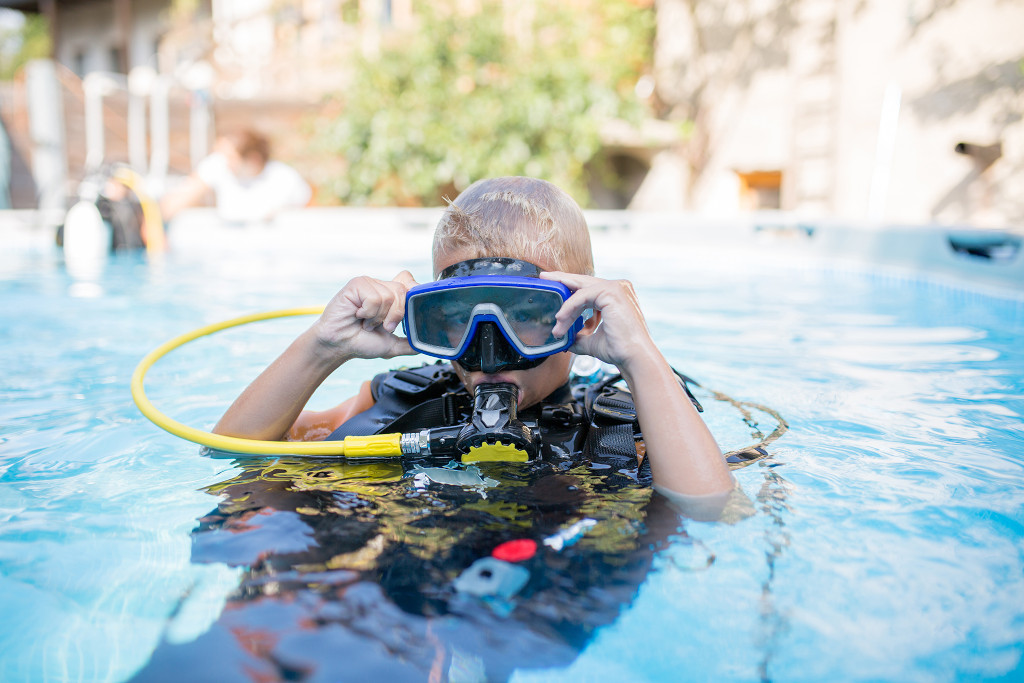
In this article, we will delve into the realm of diving with glasses and contact lenses. We will explore the possibilities, compare different visual aids available for underwater adventures, and understand how vision is affected beneath the waves.
By the end, you’ll have the knowledge to enhance your diving experience and embrace the magic of the underwater world.
Diving with glasses.Can I Scuba Dive with Glasses On?
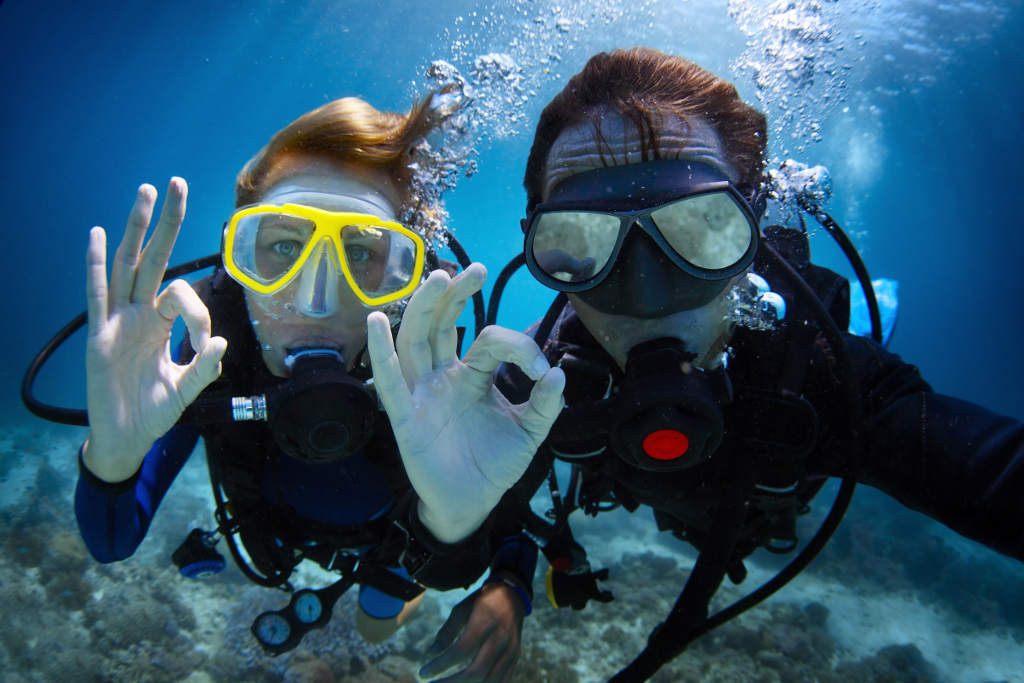
The thought of wearing glasses under a scuba mask might seem practical, but it is generally not the best recomendation. Regular glasses do not fit snugly under the mask, causing discomfort and allowing water to seep in, compromising visibility and potentially ruining the dive.
Moreover, the water pressure at depths may cause the glasses to press against the face uncomfortably, leading to discomfort and potential leaks. Divers with vision impairments are encouraged to explore alternative options that offer enhanced comfort and safety for underwater excursions.
Can I Scuba Dive with Contact Lenses On?
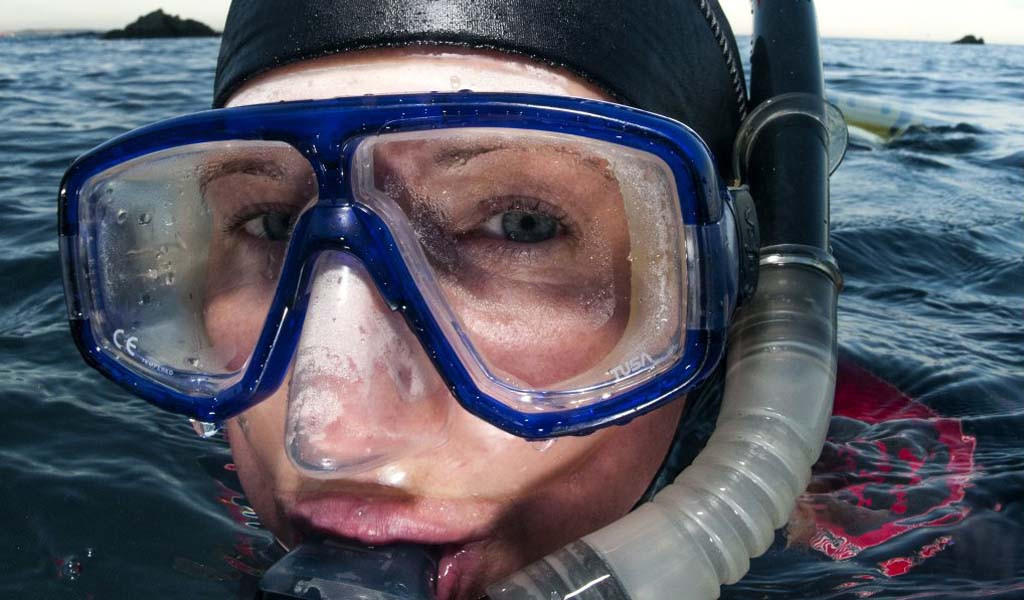
Diving with contact lenses is a more viable and popular option compared to wearing glasses. Contact lenses do not interfere with the seal of the scuba mask, providing a clear field of view and maintaining the hydrodynamics of the dive.
However, it is crucial to adhere to proper hygiene and safety measures to avoid eye infections caused by waterborne contaminants. Divers who opt for contact lenses should ensure that they are compatible with extended underwater use and invest in high-quality lenses designed for aquatic activities.
Comparison of Visual Aids Underwater
For those seeking optimal vision during scuba diving, a comparison of different visual aids is essential. Let’s explore two primary options: prescription diving masks and optical lens inserts.
Prescription Diving Masks
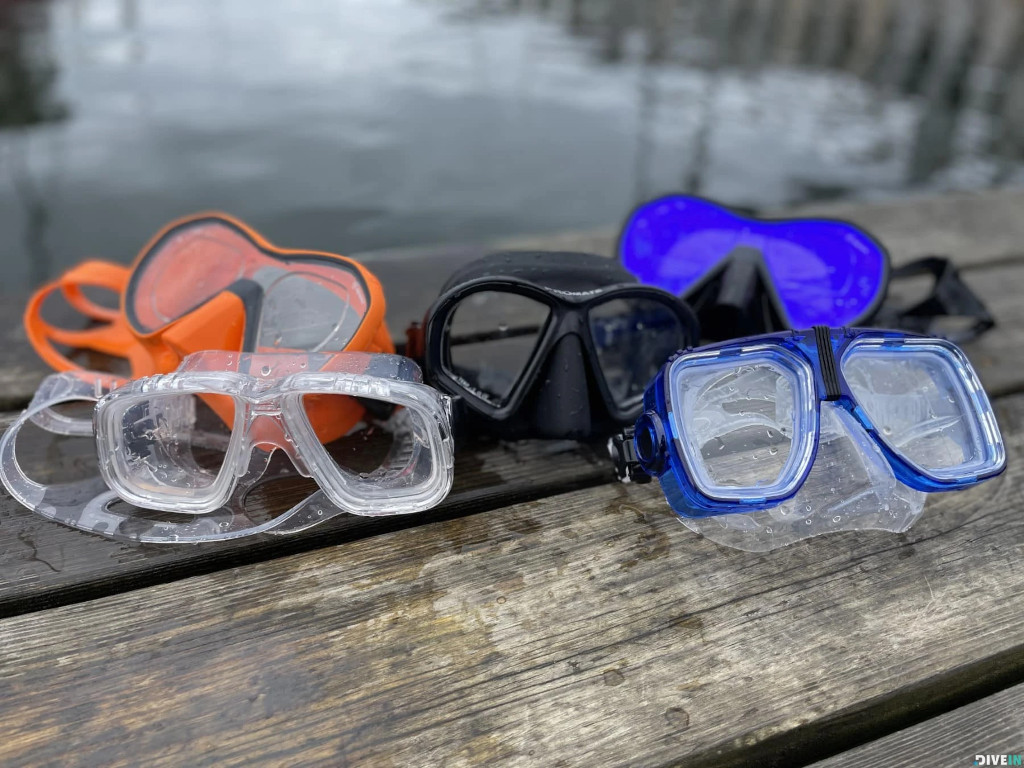
Prescription diving masks are tailor-made for divers with specific vision requirements. These masks come with built-in corrective lenses, providing optimal clarity underwater.
They offer a convenient all-in-one solution, eliminating the need for additional visual aids during diving. Prescription masks are available in various configurations to address nearsightedness, farsightedness, astigmatism, or a combination of these conditions, catering to individual visual needs.
The advantages of prescription diving masks lie in their personalized correction and precise fit, allowing divers to enjoy the underwater world with unparalleled clarity. They ensure that no visual distortion occurs, providing a natural and immersive experience. However, it is essential to consider the cost and potential need for multiple prescription masks if multiple divers with different visual prescriptions share the same mask.
Optical Lens Inserts
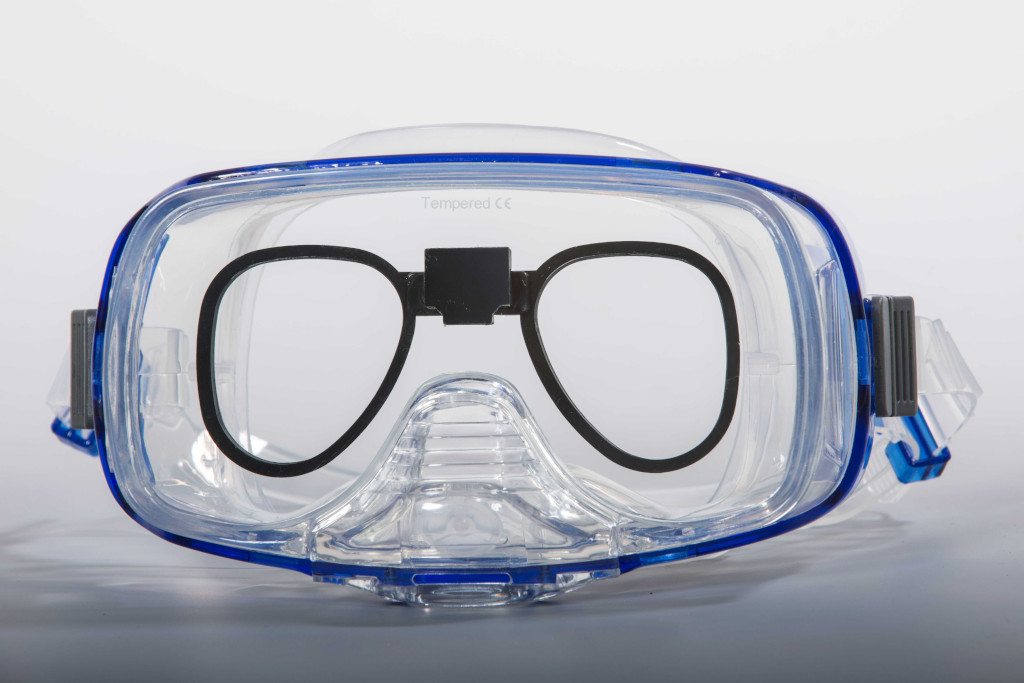
Optical lens inserts offer a flexible and cost-effective alternative to prescription diving masks. These custom lenses can be installed into most standard dive masks, converting them into prescription masks.
The versatility of optical lens inserts allows divers to use their preferred dive mask while enjoying the benefits of prescription lenses. If a diver’s prescription changes over time, the lenses can be easily replaced, making them a long-term investment.
Divers should consult with an eye care professional to obtain their prescription details, which are then used to create custom lenses that fit perfectly into their existing dive mask. While optical lens inserts provide the same visual benefits as prescription masks, they may not offer the same level of personalization and fit.
Do I Need a Prescription Mask for Snorkeling?
Snorkeling involves shorter periods of time underwater compared to scuba diving. For those who snorkel occasionally and have mild vision impairments, wearing contact lenses or using optical lens inserts in a standard dive mask may be sufficient. However, if snorkeling is a frequent activity or if significant visual correction is necessary, investing in a prescription mask can greatly enhance the overall experience. A prescription snorkeling mask ensures crystal-clear vision, allowing you to observe the vibrant marine life with precision and delight.
Can I Use Prescription Swim Goggles for Diving?
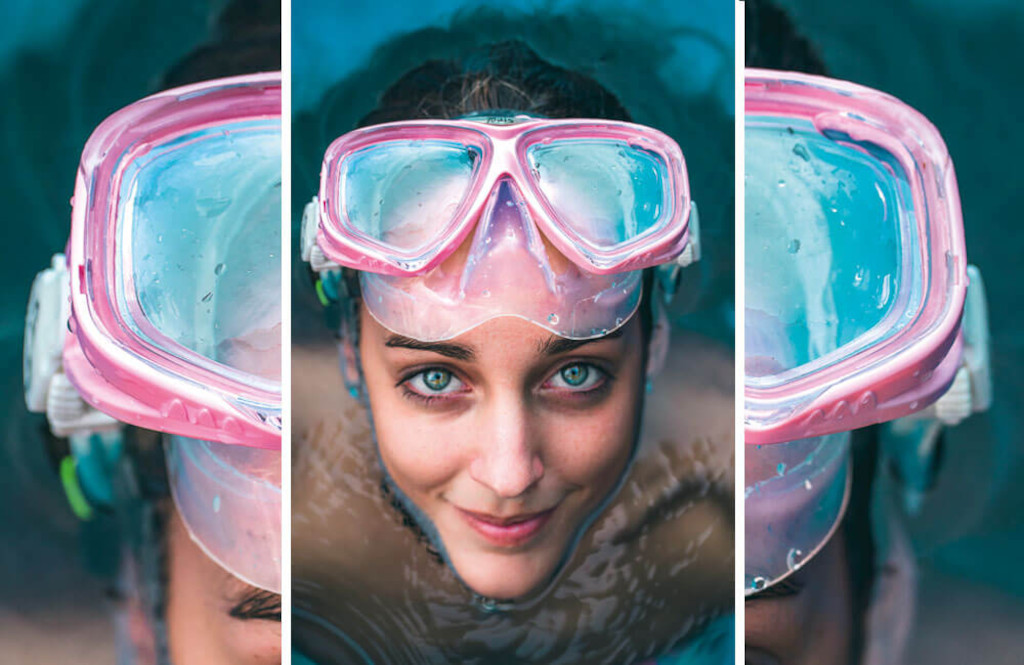
Prescription swim goggles are suitable for casual swimming and surface snorkeling, but they are not originally for scuba diving. Manufacturers specifically engineer dive masks to withstand increased pressure at depths, providing a secure and watertight seal around the face.
Using swim goggles for scuba diving is unsafe and may lead to discomfort, leaks, and compromised safety. Divers should always utilize equipment specifically designed for scuba diving to ensure a safe and enjoyable experience.
How is Vision Affected Underwater?
All divers need to understand how underwater vision affects them. When light passes through water, it encounters a different refractive index compared to air, causing light rays to bend differently as they enter the eyes. This refraction can lead to various visual phenomena:
Blurred Vision
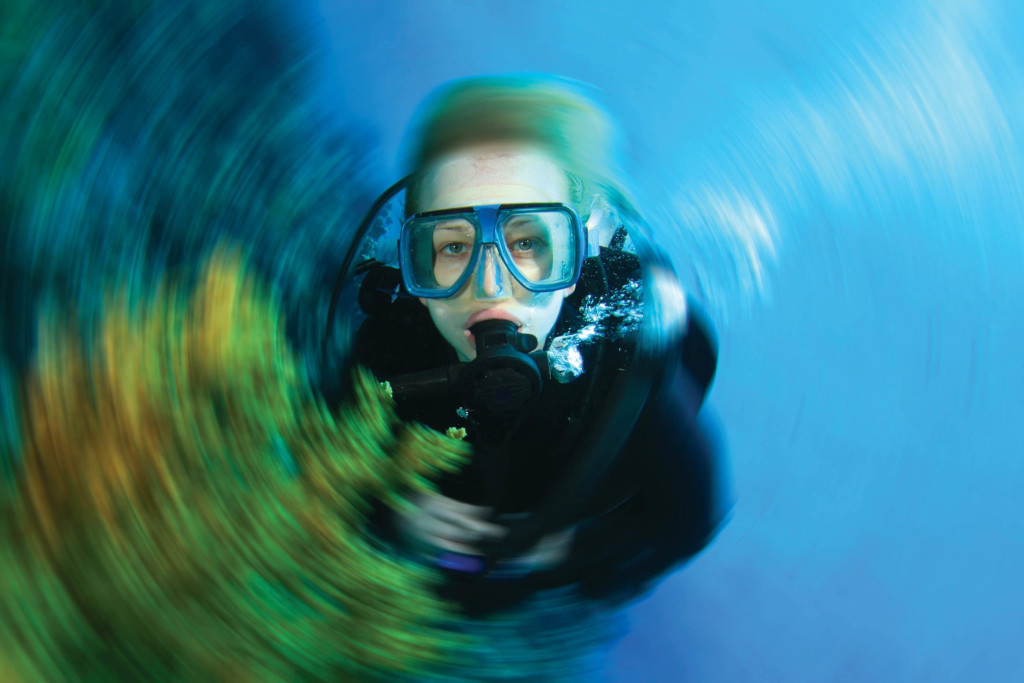
Underwater, objects may appear blurry, especially for individuals with refractive errors like nearsightedness or farsightedness.
Reduced Color Perception
Water absorbs and scatters light, affecting color perception and making certain colors appear less vibrant.
Loss of Peripheral Vision
Scuba masks limit peripheral vision, requiring divers to rely more on head movements and communication with dive buddies.
Mask Fogging
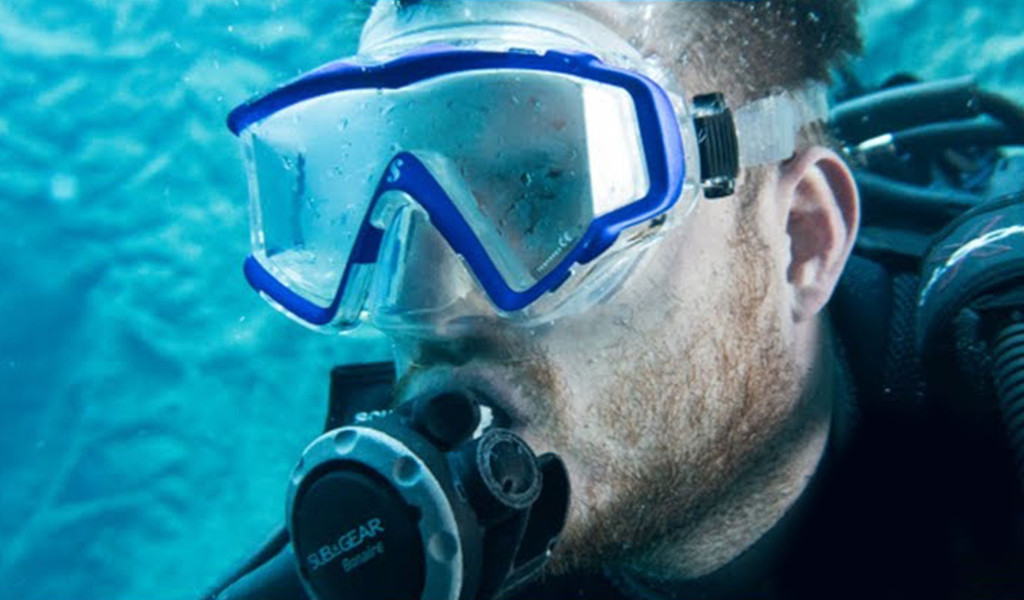
Anti-fog solutions can mitigate fogging caused by temperature differences between the inside and outside of the mask.
Depth Perception: The lack of familiar visual references underwater can affect depth perception, making it important for divers to be vigilant and use depth gauges.
Let’s recap
Scuba diving offers a breathtaking adventure into a world of stunning marine life and awe-inspiring underwater landscapes. For those with vision impairments, wearing glasses underwater may not be practical, but contact lenses and visual aids like prescription diving masks and optical lens inserts provide viable solutions.
Understanding the benefits and limitations of each visual aid is crucial for enhancing your diving experience.
Consulting with an eye care professional and a certified diving instructor can help you make an informed decision about the best visual aid for your unique needs.
By embracing suitable visual aids, you can unlock the full beauty of the underwater world, diving into a realm of crystal-clear clarity and unforgettable sights. Dive in and create lasting memories that will stay with you for a lifetime. Happy divinng!
For more information about scuba diving, you can check out blog site here, or Padi official site
